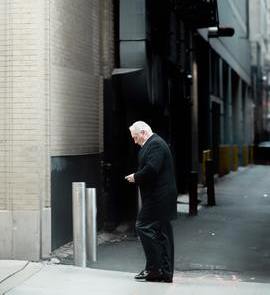
The rights of older persons
There are more elderly people in Canada now than ever before. (An elderly person is a person who is 65 years of age or older.) Today, one in ten Canadians is over 65 years old. And this proportion is increasing. For this reason, Canada and Canadians are increasingly concerned about the needs of the elderly.
Usually, older people live on their own. Many of them choose to live independently rather than with their children or in nursing homes. Some older people are unable to live independently. Others find that living alone in a large house is too boring or difficult. In these cases, many older people move to nursing homes. These are buildings with rooms, apartments and services tailored to the needs of the elderly.
Elderly people who require special care can move to nursing homes with trained staff and nurses. However, many Canadians choose to take care of their elderly family members themselves.
The government provides a small pension for the elderly. Old Age Security Pension (OAS) and Guaranteed Income Supplement (GIS) are the most common types of pensions.
An OAS Pension Check is mailed monthly to all individuals over the age of 65 who meet certain Canadian residency requirements. (Some people prefer to receive OAS from age 60, but at a lower rate.) You must be a Canadian citizen or permanent resident to receive a full OAS pension. In addition, you must have lived in Canada for 40 years from the age of 18. Tax is withheld from the OAS pension. If you have lived in Canada for less than 40 years, you may receive a partial OAS pension. In addition, you can receive a pension from the country in which you previously lived.